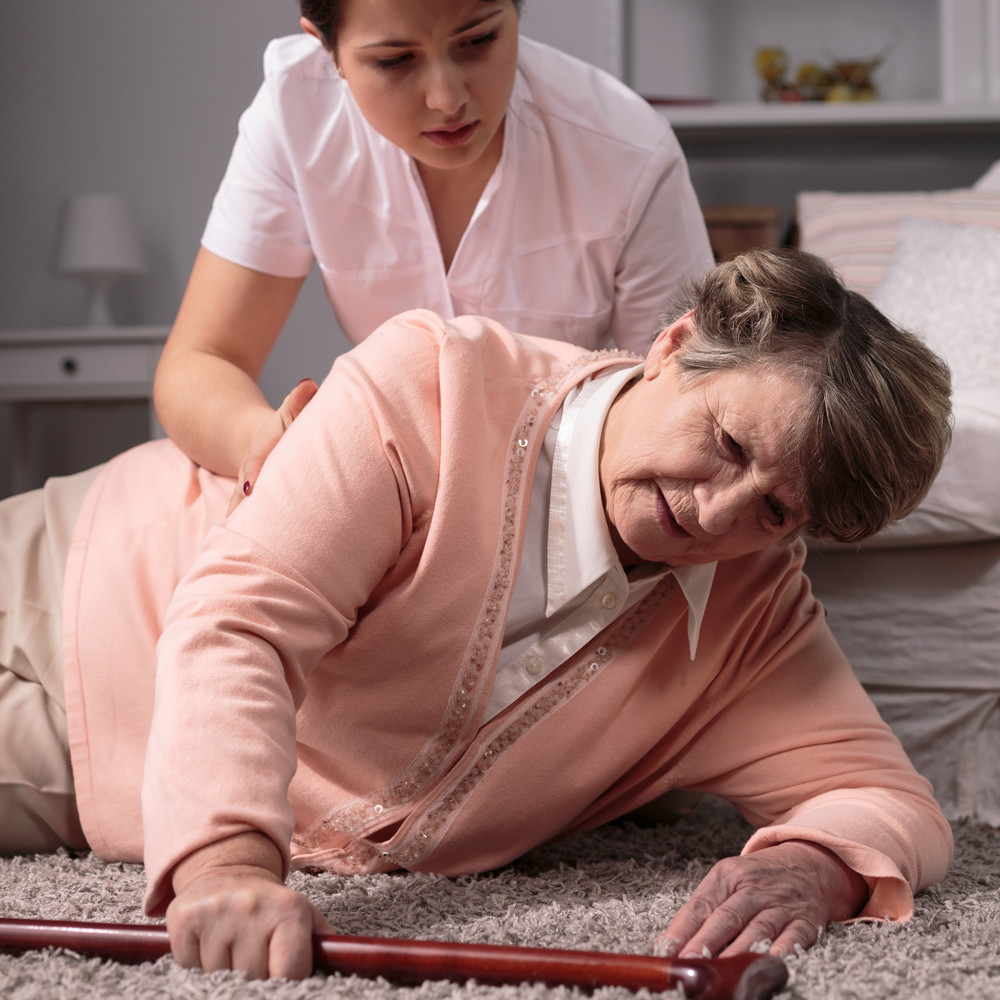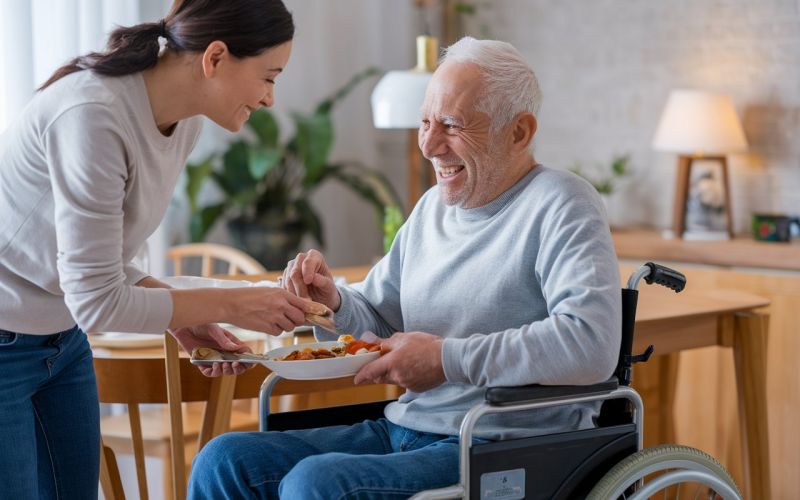In The Hands of A Filipino Caregiver
Команда iSavta | 13.11.2019
Filipinos are known to be the best nurses/caregivers/carers in the whole world. Maybe because of our values and sense of compassion to our elders. We were taught to be kind to them and treat them with utmost respect regardless of who they are. We are not even allowed to argue with them even if they are wrong and we are right. The "po" and "opo" are the most valuable words that were instilled to us by our parents and we continue to pass this on to our children and even our grandchildren. Since we are very family-oriented, every child in the Philippines has the responsibility to take care of their parents. If you abandon your parent and put them in a care home, you will be accuse of being "ingrata" or "walang utang na loob".
Not everyone can be a nurse or a caregiver. One should have specific qualities for him/her to become good carer.If you have patience as short as your thumb, do not even dare to lay your fingers on old people especially on those who are suffering from Alzheimer's disease. If you have no tolerance to dirty, messy and smelly things, then don't ever think about pursuing a career in caregiving.
Given the fact that we are only human beings. We feel sad, depressed, lonely and irritated at times. Being away from our family is not easy and dealing with old people can aggravate our emotions and push us to the limits. No matter how patient you are, there are times when you cannot stretch it out a little further and you'll snap. These situations can cause trouble if you don't know how to control it. The worst thing is, it can cost you your job, your dreams and your family's future.
As someone who studied nursing for 4 years, I can comprehensively convey the dos and don'ts of coping with Alzheimer's disease. I had the privilege of learning the basics as well as the detailed structure of the disease based on textbooks and research projects. But theoretical knowledge is far different from experience. For 5 long years of being a caregiver here in Israel, I've been through a lot of difficulties in dealing with my patients because I was once a naive carer from the Philippines who thought she can deal with everything because she finished nursing. I was dead wrong.
The literal meaning of caregiving is care+giving. To GIVE care and more. I know most of you can relate since majority of us here in Israel are working with a Savta or a Saba in a private home. I had once a patient who suffered from stroke and the incident eventually affected her reasoning as well as her cognitive skills. Until now, I still don't know why I was able to survived a year with her until she died when nobody else lasted even just for a week.
Quoted from Ambrose Bierce, The Devil's Dictionary, "Patience is a minor form of despair disguised as a virtue". It is much of a compliment when people cited you as patient. But patience is relative and not absolute. It will always boils down to your limitations according to the situation you are in. As I've said, we are only human beings who are capable of controlling our emotions but we are also capable of making impulsive decisions and actions. We may appear patient or forbearing but that's because we have no choice most of the time. With a job like ours, it is very very difficult to remain lenient and tolerant especially if things becomes stressful and difficult to bear. Personal problem is also a contributing factor which can eventually worsen the situation.
As a caregiver, I don't work much with my patience. I am more particular with "self control". I'm a confessed choleric. Things should go MY way or NO way. Believe me, I've worked hard to lengthen my patience in every situation I was in but I failed. So instead, I practiced my self-control. I found ways to steam down myself when I'm in the middle of a situation where my patience is put to test. Instead of venting it out in an argument, I prefer to settle myself in a different way... Ways that I slowly learned through my day to day experiences as a caregiver.

1. Do not mix your personal problems with your work. - Yes, easy to say but difficult to do but we have to. This is always a start of a very complicated situation inside your work area. When you get up early in the morning with 3 hours of sleep and irritated, every stimulus in your surrounding will make you angry and everything that your Savta/Saba will do or say will be poison to your ears. Tendency is, you will contribute stress to the already stressful environment which will surely affect your decision making and your job.
2. Talk to the Children or Social Worker. - Sometimes things will be out of your control. Late night shouting, refuse to eat or take medicines, aggressiveness, depression, etc. These are common problems with old people and those with Alzheimer's disease. There's nothing you can do about it unless you talk to her/his children and explain your situation. They can talk to the doctors to increase their medications to calm them down.
3. DO NOT argue with them. - It's absolutely stupid to argue with people with Alzheimer's disease. It will only make you and your Savta/Saba nervous and antagonized. The best way to communicate with these people is to speak slowly, clearly and in natural tone of voice. Keep your sentences short and to the point. "We will take a bath". "We will go to the park". "You will take your medicines". Expect to repeat everything because it's part of the routine. Avoid saying "I told you this before". Keep your anger, impatience and your sadness to yourself. Always remember that they are suffering from a disease which causes them to do these things.
4. Talk to your family and friends. - Try to communicate with your love ones as often as possible. It is very important for us to have an outlet where we can vent out our frustrations and our anger. They are your support system and they will always listen and understand your frustrations. If there are unresolved issues at home or friends, deal with it as soon as possible. Don't keep it and let it bother you and your work. It can affect the balance of your thoughts. Always maintain a rational behavior by controlling and blocking fussy things around you. Do not accept a once in a blue moon day off even if that means another 1000 shekels of income. It is important for us to be out in a normal environment once in a while. We are entitled to a day off every weekend and it's really our choice to stay or not. But if things are getting toxic and unbearable, we must go out and spend time with our friends even just for a short 24 hours at least once a month.
5. Take Care of Yourself. - One way to relieve stress is to be aware of your physical self. Live clean, eat healthy, sleep at least 6 hours a day and exercise regularly. When you are stressed, a good warm bath in the evening before bed can help to relax your mind and let you fall asleep easily. Re-hydrate yourself by drinking 8-10 glasses of water everyday. Take at least 30 minute walk with your Savta/Saba everyday. This will help you both cool down when things are getting messy at home. Avoid too much drama into your bloodstream. Too much exaggeration can trigger stress. When you're sad, stop watching those stressful teleserye and switch to inspirational and happy videos instead. Don't spend the entire day on facebook and twitter. These social platforms can trigger depression, insecurity and self-pity.
Lastly, always remember that They are Human Beings like You. With this kind of thought, you will always find yourself putting your own feet on their shoes. If they are scattering their dirt all over the place like dogs, it doesn't give you the right to treat them like dogs too. If they are howling like cats until the wee hours of the morning, it doesn't mean you have to treat them like cats too. Treat them like how you want your parents or grandparents to be treated. According to Psychologist Dale Atkins, "People with Alzheimer’s are people first. They need to feel valued, be treated with dignity, encouraged and loved."
Note: This article was written by Julie way back 2012 for a Filipino Magazine in Israel.











